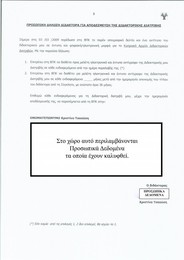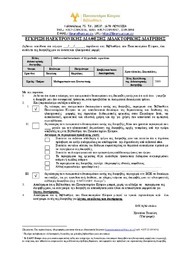| dc.contributor.advisor | Sophocleous, Christodoulos | en |
| dc.contributor.author | Tsaousi, Christina | en |
| dc.coverage.spatial | Κύπρος | el |
| dc.coverage.spatial | Cyprus | en |
| dc.creator | Tsaousi, Christina | en |
| dc.date.accessioned | 2012-09-21T07:35:20Z | |
| dc.date.accessioned | 2017-08-03T10:33:33Z | |
| dc.date.available | 2012-09-21T07:35:20Z | |
| dc.date.available | 2017-08-03T10:33:33Z | |
| dc.date.issued | 2009-03 | |
| dc.date.submitted | 2009-03-03 | |
| dc.identifier.uri | https://gnosis.library.ucy.ac.cy/handle/7/39380 | en |
| dc.description | Includes bibliography (p. 125-131). | en |
| dc.description | Thesis (Ph. D.) -- University of Cyprus, Faculty of Pure and Applied Sciences, Department of Mathematics and Statistics, October 2008. | en |
| dc.description | The University of Cyprus Library holds the printed form of the thesis. | en |
| dc.description | Number of sources in the bibliography: 69 | en |
| dc.description.abstract | Σε αυτή την διατριβή, πρώτα θα αναφερθούμε σε βασικούς ορισμούς των ομάδων μετασχηματισμών Lie, των απειροστών μετασχηματισμών και το αναλλοίωτο των μερικών διαφορικών εξισώσεων, τα οποία είναι χρήσιμα για τα επόμενα κεφάλαια. Καταρχήν, θα ξεκινήσουμε παρουσιάζοντας γνωστά αποτελέσματα. Δηλαδή θα εφαρμόσουμε την απειροστή μέθοδο του Lie για τον υπολογισμό ομάδων ισοδύναμων μετασχηματισμών για την μη γραμμική εξίσωση διάχυσης. Επίσης, θα χρησιμοποιήσουμε την μέθοδο για τον υπολογισμό των αναλλοίωτων συναρτήσεων της γραμμικής υπερβολικής εξίσωσης. Επιπλέον. Θα περιγράψουμε τον τρόπο με τον οποίο ο Ibragimov έλυσε το πρόβλημα του Laplace. Σαν δεύτερο βήμα, ακολουθώντας την ιδέα του Ibragimov, για εύρεση ισοδύναμων μετασχηματισμών, θα υπολογίσουμε ισοδύναμους μετασχηματισμούς για δοσμένες οικογένειες μερικών διαφορικών εξισώσεων. Συγκεκριμένα, θα υπολογίσουμε τις ομάδες ισοδυναμίας για την γενική μορφή της υπερβολικής εξίσωσης και δύο ειδικών περιπτώσεων της. Επίσης, θα υπολογίσουμε τις ομάδες ισοδυναμίας για την υπερβολική εξίσωση διάστασης n, για την κυματική εξίσωση διάστασης n και τέλος για σύστημα που αποτελείται από δύο υπερβολικές εξισώσεις. Γι’ αυτές τις οικογένειες εξισώσεων, βρίσκουμε τις αναλλοίωτες συναρτήσεις πρώτης ή/και δεύτερης τάξης. Σε περισσότερες από αυτές, θα χρησιμοποιήσουμε τις αναλλοίωτες συναρτήσεις ή/και τις αναλλοίωτες εξισώσεις για να βρούμε την μορφή αυτών των εξισώσεων οι οποίες μπορούν να απεικονισθούν σε εξισώσεις συγκεκριμένης μορφής. Τέλος, θα δώσουμε κάποια γνωστά αποτελέσματα που αφορούν τους σημειακούς μετασχηματισμούς μιας μερικής διαφορικής εξίσωσης. Συγκεκριμένα, θα παρουσιάσουμε την μορφή των σημειακών μετασχηματισμών οι οποίοι συνδέουν τρεις ομάδες μερικών διαφορικών εξισώσεων που αποτελούνται από μια εξαρτημένη και δύο ανεξάρτητες μεταβλητές. Σκοπός μας είναι να γενικεύσουμε αυτά τα αποτελέσματα για συστήματα που αποτελούνται από δύο διαφορικές εξισώσεις. Δηλαδή, πρώτα θα παρουσιάσουμε αποτελέσματα που αφορούνε τις σχέσεις των μετασχηματισμών μερικών παραγώγων με τις αρχικές παραγώγους και δεύτερον χρησιμοποιώντας αυτά τα αποτελέσματα θα προσδιορίσουμε τη μορφή των σημειακών μετασχηματισμών που συνδέουν συγκεκριμένα συστήματα μερικών διαφορικών εξισώσεων. | el |
| dc.description.abstract | In this thesis, firstly we develop the basic concepts of Lie groups of transformations, infinitesimal transformations and invariance of partial differential equations that are necessary in the following chapters. In the beginning we start with known results. That is, we use the Lie infinitesimal method for calculating the continuous group of equivalence transformations, for the non-linear diffusion equation. Also, we apply this method to derive differential invariants for the linear hyperbolic equation in two variables. Finally, we describe the method which used by Ibragimov to solve the Laplace problem. The second step is to calculate equivalence transformations for given families of equations. In the spirit of the recent work of Ibragimov, who adopted the infinitesimal method for calculation of invariants of families of differential equations using the infinitesimal groups, we apply the method to several partial differential equations. In this thesis, we derive the equivalence group for hyperbolic equations of general class and for two special cases of it. Also, we calculate equivalence transformations for n-dimensional hyperbolic equations, for n-dimensional wave-type equations and finally for hyperbolic equations with two dependent variables. For these families of equations, we find the forms of differential invariants of first or/and second order. In certain cases, we will use the derived invariants or/and invariant equations to find the form of those equations that can be mapped into an equation with particular form. Furthermore, we work on form-preserving point transformations for partial differential equations. We present some known results for three classes of equations restricted to one dependent variable and two independent variables concerning the nature of connecting point transformations. We will generalize these results for forms of point transformations connecting two systems of two partial differential equations. The aim of this part is first to present results concerning the relation of the transformed partial derivatives to the original partial derivatives and secondly to exploit these results to reduce the general range of point transformations connecting systems of two partial differential equations belonging to restricted classes. | en |
| dc.format.extent | xii, 131 p. ; 30 cm. | en |
| dc.language.iso | eng | en |
| dc.publisher | Πανεπιστήμιο Κύπρου, Σχολή Θετικών και Εφαρμοσμένων Επιστημών / University of Cyprus, Faculty of Pure and Applied Sciences | |
| dc.rights | info:eu-repo/semantics/openAccess | en |
| dc.rights | Open Access | en |
| dc.subject.lcsh | Differential equations | en |
| dc.subject.lcsh | Differential equations, Hyperbolic | en |
| dc.subject.lcsh | Differential equations, Linear | en |
| dc.subject.lcsh | Differential invariants | en |
| dc.subject.lcsh | Wave equations, Invariant | en |
| dc.title | Differential invariants of hyperbolic equations | en |
| dc.title.alternative | Αναλλοίωτες συναρτήσεις για υπερβολικές εξισώσεις | el |
| dc.type | info:eu-repo/semantics/doctoralThesis | en |
| dc.contributor.committeemember | Σοφοκλέους, Χριστόδουλος | el |
| dc.contributor.committeemember | Σαμίου, Ευαγγελία | el |
| dc.contributor.committeemember | Δαμιανού, Παντελής | el |
| dc.contributor.committeemember | Torrisi, Mariano | en |
| dc.contributor.committeemember | Yehorchenkov, Irina | en |
| dc.contributor.committeemember | Sophocleous, Christodoulos | en |
| dc.contributor.committeemember | Samiou, Evangelia | en |
| dc.contributor.committeemember | Damianou, Pantelis | en |
| dc.contributor.department | Πανεπιστήμιο Κύπρου, Σχολή Θετικών και Εφαρμοσμένων Επιστημών, Τμήμα Μαθηματικών και Στατιστικής | el |
| dc.contributor.department | University of Cyprus, Faculty of Pure and Applied Sciences, Department of Mathematics and Statistics | en |
| dc.subject.uncontrolledterm | ΥΠΕΡΒΟΛΙΚΕΣ ΕΞΙΣΩΣΕΙΣ | el |
| dc.subject.uncontrolledterm | ΚΥΜΑΤΙΚΕΣ ΕΞΙΣΩΣΕΙΣ | el |
| dc.subject.uncontrolledterm | ΙΣΟΔΥΝΑΜΟΙ ΜΕΤΑΣΧΗΜΑΤΙΣΜΟΙ | el |
| dc.subject.uncontrolledterm | ΣΗΜΕΙΑΚΟΙ ΜΕΤΑΣΧΗΜΑΤΙΣΜΟΙ | el |
| dc.subject.uncontrolledterm | ΓΡΑΜΜΙΚΟΠΟΙΗΣΗ | el |
| dc.subject.uncontrolledterm | ΑΝΑΛΛΟΙΩΤΕΣ ΣΥΝΑΡΤΗΣΕΙΣ | el |
| dc.subject.uncontrolledterm | ΗΜΙ-ΑΝΑΛΛΟΙΩΤΕΣ ΣΥΝΑΡΤΗΣΕΙΣ | el |
| dc.subject.uncontrolledterm | ΑΝΑΛΛΟΙΩΤΕΣ ΕΞΙΣΩΣΕΙΣ | el |
| dc.subject.uncontrolledterm | HYPERBOLIC EQUATIONS | en |
| dc.subject.uncontrolledterm | WAVE EQUATIONS | en |
| dc.subject.uncontrolledterm | EQUIVALENCE TRANSFORMATIONS | en |
| dc.subject.uncontrolledterm | POINT TRANFORMATIONS | en |
| dc.subject.uncontrolledterm | LINEARIZATION | en |
| dc.subject.uncontrolledterm | SEMI-INVARIANTS | en |
| dc.subject.uncontrolledterm | INVARIANT EQUATIONS | en |
| dc.identifier.lc | QA372.T73 2008 | en |
| dc.author.faculty | Σχολή Θετικών και Εφαρμοσμένων Επιστημών / Faculty of Pure and Applied Sciences | |
| dc.author.department | Τμήμα Μαθηματικών και Στατιστικής / Department of Mathematics and Statistics | |
| dc.type.uhtype | Doctoral Thesis | en |
| dc.rights.embargodate | 2009-03-03 | |
| dc.contributor.orcid | Sophocleous, Christodoulos [0000-0001-8021-3548] | |



